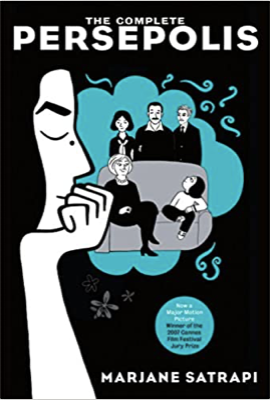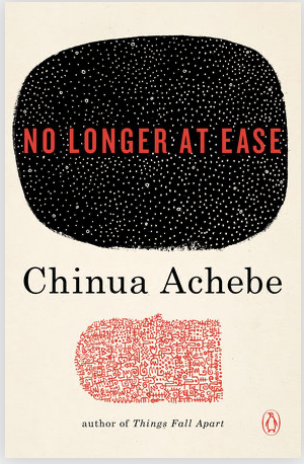GS 200: Final Exam Essay
- Sara Lewter

- Apr 29, 2019
- 4 min read
Updated: Feb 9, 2021
Global studies is the study of political, economic, legal, ecological, and cultural interconnectedness. It examines global power structures that are influenced by perspectives such as Orientalism. It also examines transcontinental issues, globalization, and human rights. I think three important topics that help in the understanding of global studies are refugees and asylum, orientalism, and race and ethnicity.
I think one of the most important topics that we explored this semester involved refugees and asylum. During the exploration of this topic, I learned that refugees are any individual forced to leave their country in order to escape war, persecution, or natural disaster. I also learned that asylum is the protection granted by a nation to someone who has left their native country as a political refugee. This topic is important in terms of understanding “global studies” because there are refugees all over the globe seeking asylum. During this topic, we explored not only why they were seeking asylum, but also why it was difficult for other countries to grant asylum. Both sides of the spectrum were explored during this topic. When granting asylum, a multitude of things are considered. According to the video “Human Rights, Refugees, and Asylum” from Module 4A, age, gender, socio-economic status, geographic origins, language, race/ethnicity, and logistics are all factors that are considered during the asylum granting process. There is mention of the Dublin Regulation in one of the readings from Module 4A that also relates to the novel Go, Went, Gon
e by Jenny Erpenbeck. In the novel, some of the asylum seeker had children, saw parents being killed, or saw friends drown. During the first discussion of the novel, I mentioned how the law isn’t really concerned that the asylum seekers are victims of war, the first thing the law decides on is whether or not they are allowed to apply for asylum. I also make mention that the European law called Dublin II is what determines the EU Member State responsible for examining an application for asylum seekers. In the novel, Richard understands that Dublin II allows for all European countries without a Mediterranean coastline to purchase the right to not have to listen to the stories of arriving refugees. So, basically the asylum seekers are having to tell their story in a country where no one is actually legally obligated to listen or do anything to help. I think this topic is very important in understanding global studies because it is about human rights and transcontinental issues, and it examines both sides of the problem.
Another important topic that we explored this semester involved Orientalism. According to the Edward Said interview on his book Orientalism from Module 5A, orientalism tries to “answer the question of why we have a preconceived notion of what kind of people live there.” Orientalism also asks how we understand others who are different from us due to reasons such as race and ethnicity. This is important in terms of understanding “global studies” because global studies examines how global power structures are influenced by perspectives such as orientalism. This topic also relates to the discussion on Persepolis by Marjane Satrapi. In Persepolis, Marji is sent to Vienna where she is
safe from the Iranian regime. While in Vienna, Marji has a hard time keeping friends around. Despite thinking they know her, no one truly understands Marji or what she has lived through. No one in Vienna understood her or her way of doing things. Marji was actually confronted about being from Tehran, some even going so far as to comment that all of her people were thought to be savages. I think this goes along with how orientalism asks how do we understand others who are different from us due to thing such as their race, ethnicity, and culture.
The third topic that I think is one of the most important topics we explored this semester is that of Race and Ethnicity. In the video “Race and Ethnicity as Social Constructions and Social Realities” from Module 1A, race is defined as “a group defined by itself or others as distinct by virtue of perceived common physical characteristics that are held to be inherent.” In the novel No Longer at Ease by Chinua Achebe, race plays a big part. Rac
e is see inherently throughout the novel. In the novel, there are frequent conversations about how you should not marry outside of your race/class. In the novel, race is used to determine the balance of power. For example, the highest and most valuable positions are the European positions. In the novel, wealth and success are often based off how close to the “European way” someone is. For example, Obi is a source of pride for his tribe simply because he has a European education and has a position in the government. This also goes along with the Pears’ Soap ads from the video “Discourse and the Iconography of Empire” in Module 1A. The “European way” is similar to that of the Pears’ Soap ads in that they both make it seem that being white is more valuable than having dark skin like the Nigerians. I think this topic is important in understanding global studies because it examines how race is a transcontinental issue.
Overall, the topics of refugees and asylum, orientalism, and race and ethnicity play an important role in the understanding of global studies. All three topic involve exploring and examining cultural interconnectedness. The topic of refugees and asylum explores both sides. We see explore why refugees are seeking asylum, but we also explore the Dublin Regulation and why granting asylum is a long and difficult process. This also delves into the novel Go, Went, Gone by Jenny Erpenbeck. The topic of orientalism examines how global power structures are influenced by other perspectives. This topic also delves into how people often believe they “know” another culture and its people based off of things they have seen/heard, but they don’t actually know anyone from that culture. This also delves into the novel Persepolis by Marjane Satrapi. Finally, the third topic of race and ethnicity is important into understanding how global studies explores transcontinental issue. This topic also lead sinto discussion about how race is shown in the novel No Longer at Ease by Chinua Achebe.








Comments